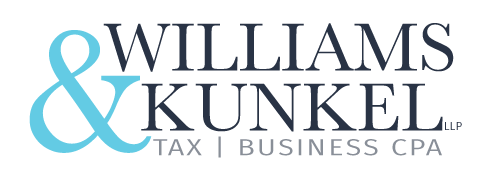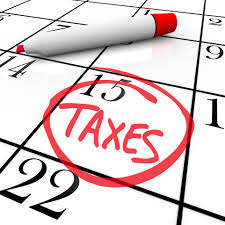Tax season is over. Is hindsight really that helpful?
Now you can take a sigh of relief and push any thoughts of taxes far from your mind, right?
Then repeat and rinse by doing the stress-filled mad dash all over again in just under 12 months (just like you swore you wouldn’t this year) to file next year’s taxes?
“Doing the same thing over and over again and expecting different results.” – Albert Einstein
As CPAs and tax professionals, we have front-row seats to the tax time madness each year. Luckily, we’ve learned a few things over the years, which we’d like to share with you. There’s no shortcut for bypassing the stress — but common sense and good organization can go a long way in helping:
Damage assessment
“You can’t know where you’re going if you don’t know where you’ve been.” This holds true for both tax planning and filing taxes. Planning for future tax years is much more effective with the perspective of prior years. This year:
- Review your taxes carefully line by line and dig deep enough so that you understand the mechanics behind your filing.
- Go through your return with your tax professional or accountant while it’s still top-of-mind and ask which tax items hurt or helped you.
- Talk about the strategies that can be used this year to legally minimize taxes next year.
- Put a plan in place to utilize the strategies you discussed.
- Finally, implement. After all, a plan without action isn’t useful at all.
Be an organized filer
It sounds pretty simple, but very few people do it well, yet this tip can save you both time and money. Grab a big envelope, a manila file or a plastic storage box. Put it somewhere convenient where dropping tax information inside is a no-brainer. Put a small notebook or some blank pages inside for notes. Then, any time tax information is received, drop it inside. Common items? Read what to file in our article Tax season record-keeping stressing you out?
Plan ahead and make a planning date
If you follow our advice, you’ll be due for a second meeting to discuss your tax situation in the last quarter of the calendar year in order to look forward, not back. Schedule a date with your tax preparer or accountant in late November or December to do a trial run of your tax filing. If you create a tax file, the information you need to complete your forecast should be easy to locate and refer to.
Our tips require discipline, but the rewards are real
Find and make the most of opportunities and then recognize and correct any potential problems. Best of all, close the year and enter the tax season with peace of mind about your financial situation as you proactively plan in advance, not in hindsight.

